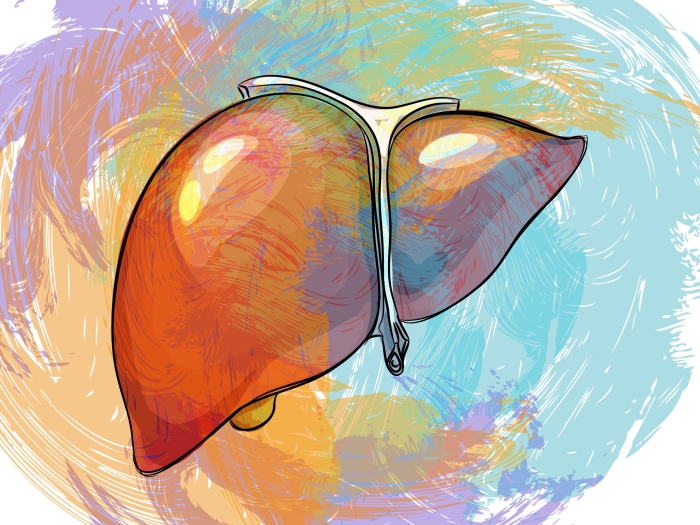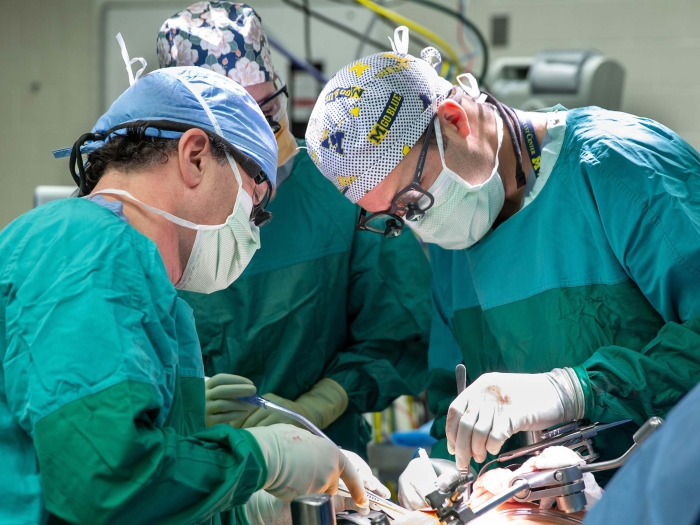Although there is no cure for inflammatory bowel disease, doctors are using new and effective means to help patients find relief.
7:00 AM
Author |

Medical advances are improving treatment options for patients with inflammatory bowel disease (IBD), an umbrella term that includes Crohn's disease and ulcerative colitis.
MORE FROM MICHIGAN: Sign up for our weekly newsletter
And a new approach is helping doctors provide a more targeted diagnosis.
"We're no longer thinking of the disease just as mild, moderate or severe," says Ryan Stidham, M.D., a Michigan Medicine gastroenterologist specializing in the treatment of inflammatory bowel diseases and an assistant professor at the University of Michigan. "We're thinking of the behavior of disease and how it will affect you today and in the future."
"Every patient's therapy has to be customized to their needs today and their expected future disease course."
New ways to diagnose IBD
To make an initial diagnosis, the standard strategy remains undergoing a colonoscopy, in which a thin tube outfitted with a video camera examines the colon and small intestine. The procedure looks for ulcers, inflammation and precancerous changes.
But colonoscopy has its limitations: Crohn's disease can hide higher up in the small intestine, beyond the reach of the video camera.
Furthermore, "this is not an easy test for patients to undergo, so we should use it judiciously," Stidham says.
That's why gastroenterologists are increasingly using complementary tests that add to the information provided by colonoscopy.
Among them: computed tomography and magnetic resonance enterography. Unlike colonoscopies, these tests can examine all the intestines, including sections outside the reach of a colonoscope. Additionally, they can look within the intestinal tissue itself to check for complications such as fistulas and strictures.
While imaging adds information, there is also a need for quick, easy tests to gauge true disease activity. C-reactive protein, or CRP, is a blood test marker that identifies inflammation in the body. Fecal calprotectin is a new test that measures inflammation in the gastrointestinal tract using a stool sample. Both tests provide more convenient and lower-cost methods to check for relevant inflammation that patients can't feel.
Game-changing therapy advances
Just as diagnostics have changed, so have treatments.
"Between 1970 and 2010, there were very few treatment options," says Stidham. "Anti-TNF biologics, which block proteins produced by the immune system causing inflammation, were introduced for IBD in the late 1990s and made a very positive impact on controlling symptoms."
Now, even more types of anti-inflammatory drugs are available to help physicians customize therapy to an individual's needs.
"The number of therapies available to treat IBD is quickly growing," says Stidham, who notes that recently approved drugs ustekinumab (Stelara) and vedolizumab (Entyvio) both work differently than anti-TNF medications such as Humira and Remicade — providing new options for patients who may not have responded to prior treatments.
"Having more treatment options that are effective and safe gives patients additional ways to prevent surgery, control their IBD symptoms and get some consistency and control back in their lives," he says.
Forward-thinking treatment
Doctors have adjusted their approach to treating IBD when symptoms are present.
But patients now might also receive care when their IBD is asymptomatic or in remission.
"We appreciate objective monitoring of the disease," Stidham says, adding that patients are screened regularly to ensure the inflammation is suppressed. "Even if symptoms are improved, it's still important for treatment goals to include as much intestinal healing as possible. Once we achieve that, it leads to the best outcomes."
Eventually, Stidham and his colleagues hope to predict the complications of IBD. He's studying blood-based biomarkers of scar tissue in the intestine to gauge its damage and try to predict a patient's prognosis.
Stidham also hopes the information will shed light on how patients will respond to a certain medicine and the likelihood of developing complications, further opening the door to more customized treatment.

Explore a variety of healthcare news & stories by visiting the Health Lab home page for more articles.

Department of Communication at Michigan Medicine
Want top health & research news weekly? Sign up for Health Lab’s newsletters today!





